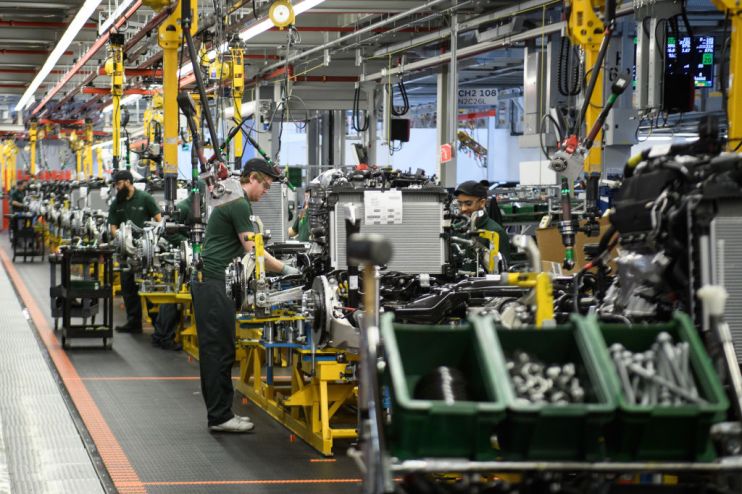Johnson Matthey to cut 2,500 jobs as coronavirus bites

Manufacturing firm Johnson Matthey has announced that it will cut 2,500 jobs over the next three year as a result of the coronavirus pandemic.
The FTSE 100 company said that the crisis had knocked its underlying profit by £60m as it unveiled its annual results today.
Shares in the firm slipped 3.1 per cent in the morning’s trading.
The figures
In the year ending 31 March, Johnson Matthey saw revenue increase 36 per cent to £14.6bn, up from £10.7bn the year before.
Profit however dropped back over a quarter to £377m, down on £531m in 2019, which it said was due to a restructuring and impairment charge of £140m and the coronavirus impact.
Sales were more or less constant across the last two years at £4.2bn, but earnings per share plunged 39 per cent due to the fall in profit.
Johnson Matthey’s board also elected to slash its dividend for the year in half to 31.1p as a result of the crisis.
In doing so, it became the 48th FTSE 100 firm to cut its dividend this year, according to AJ Bell’s Russ Mould.
As a result, he said, “the FTSE 100’s total dividend payment drops to £63 billion, the lowest figure since 2015″.
The company said it had a “strong” balance sheet of £1.1bn, with cash flow of £598m.
Before the Open: Get the jump on the markets with our early morning newsletter
Why it’s interesting
In a statement, Johnson Matthey boss Robert MacLeod said that although the firm had already made £120m in cost savings, it needed to be “even more efficient” to maintain its competitiveness.
As a result, the firm will be targeting annualised savings of £80m by the end of 2023, which means that 2,500 jobs will be lost in the coming years.
In the long-term, the rise of electric vehicles will present a challenge for the firm, which specialises in catalytic converters for normal combustion engines.
Nicholas Hyett, equity analyst at Hargreaves Lansdown, said that the severe downturn facing the car industry had hit the firm hard.
He said: “Given the long term trend towards electric vehicles we worry about what disruption to car sales would mean.
“While the group is pouring millions into its new battery materials business, a sustained downturn could spoil the final party for the catalysts business which is still the engine room for group profits and ultimately funds investment in electric vehicle technology.”
According to Richard Hunter of Interactive Investor, Johnson Matthey “has long recognised the warning signs of an evolving vehicle market, and its battery business, while in relative terms is still at a formative stage, is nonetheless showing promising signs of growth and revenue contribution”.
He added that “Johnson Matthey’s presence in the geographies of Asia and the US, as well as its exposure to favourable environmental trends offer potential, but this needs to be translated into strong and sustainable growth”.
What Johnson Matthey said:
Chief executive MacLeod said: “COVID-19 has brought unprecedented challenges to the world and Johnson Matthey.
“During this pandemic, we have tried to balance the needs of all of our stakeholders but our first priority remains the health and safety of our people, customers, suppliers and communities where we operate.